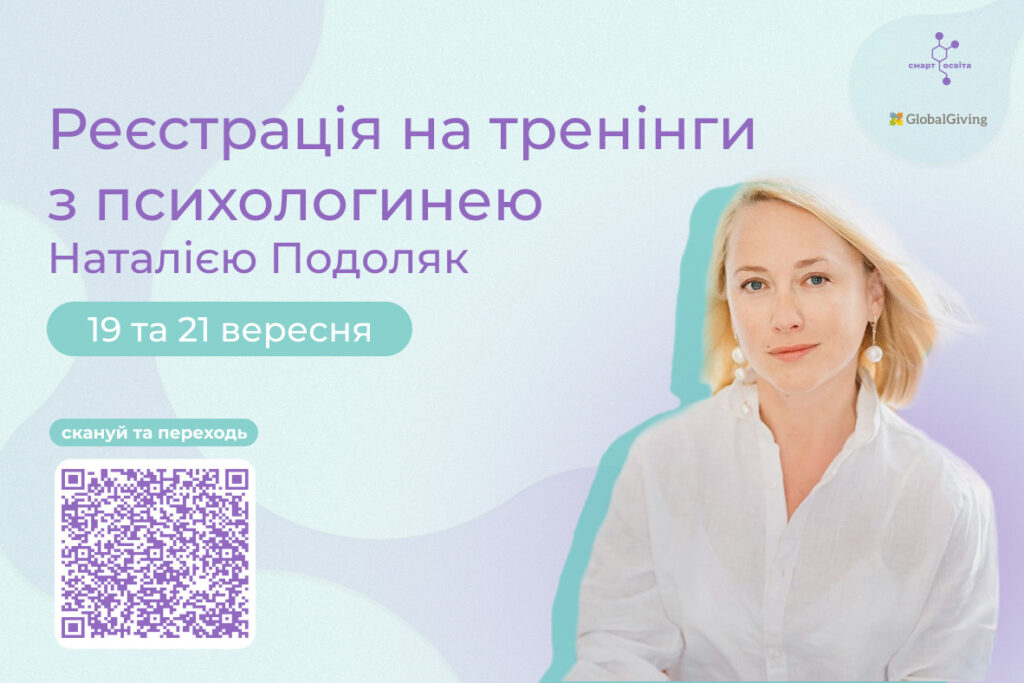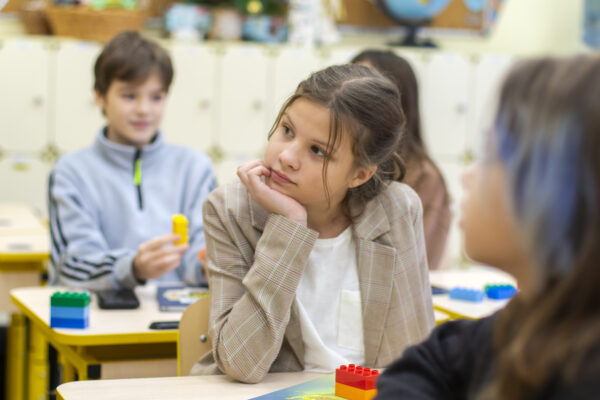

Enrollment for a two-day training with Natalia Podolyak is now open.
Teachers’ psychological competence development training will occur on September 19 and 21 from 16 to 18:00.
You can join by filling out the form: https://forms.gle/Fa2hMwbFehfsXUB98
This time, we are conducting training for educators with the support of the Global Giving platform.
During the training, you will:
🟨 deepen your knowledge of stress and trauma;
🟨 learn how to classify traumatic events;
🟨 how to provide first aid to children;
🟨 techniques and methods to reduce stress in yourself and children;
🟨 get tools for raising an emotionally stable person who can cope with their emotions.
Upon completion of the training, you will receive a personal certificate certified by the signatures of the chairman of the board of the “Smart Osvita” NGO and the trainer of the author’s program “Children of War”.
The total amount of training is 6 hours (0.2 ECTS credits).
Program developers:
- Natalia Podoliak is a family and child psychotherapist (areas of work: CBT, EMDR, SST). Trainer of the program “Children and War. Healing Techniques” program.
- Oksana Makarenko is a co-founder of the “Smart Osvita” NGO and head of the psychological department.
You can read more about the program here.
The training program with Natalia Podolyak includes theoretical and practical blocks for different groups of educators. The classes help educators develop knowledge about psychological traumatology and provide specific techniques and methods to reduce stress and emotional stress.
During the training, educators learn about stress and trauma, classifying traumatic events, and the first steps to improve a child’s emotional state.
When working with children, do we know what can become a “forbidden” phrase and wound a person even more? Instead, there are also expressions that help a child heal. For example, the words “I’ll help you” and “we’ll cope together” help to restore psychological balance, while the words “don’t cry, you’re a man”, “it’s okay”, “I warned you, don’t do that”, etc. will traumatize the child.
Children’s reactions to traumatic events differ depending on their age. During the training, teachers learn about the bodily manifestations, emotions, thoughts, and behavior of children under 6, 7-11, and 12-16 years old.
Most importantly, they receive the necessary information about what psychological assistance should be provided in each case.



